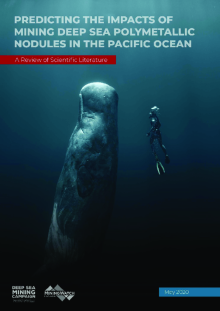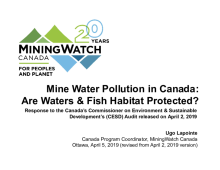Ontario Must Assess the Impacts of Mines and Smelters Before They Are Built!
This report, written by Ontarians for a Just Accountable Mineral Strategy (OJAMS), commissioned by MiningWatch Canada and endorsed by Northwatch, Friends of the Attawapiskat River, the Canadian Environmental Law Association, Greenpeace Canada, and Kebaowek First Nation, is being submitted to the Ontario government in response to changes it made to the Environmental Assessment Act as part of the omnibus COVID-19 Economic Recovery Act, Bill 197.



















